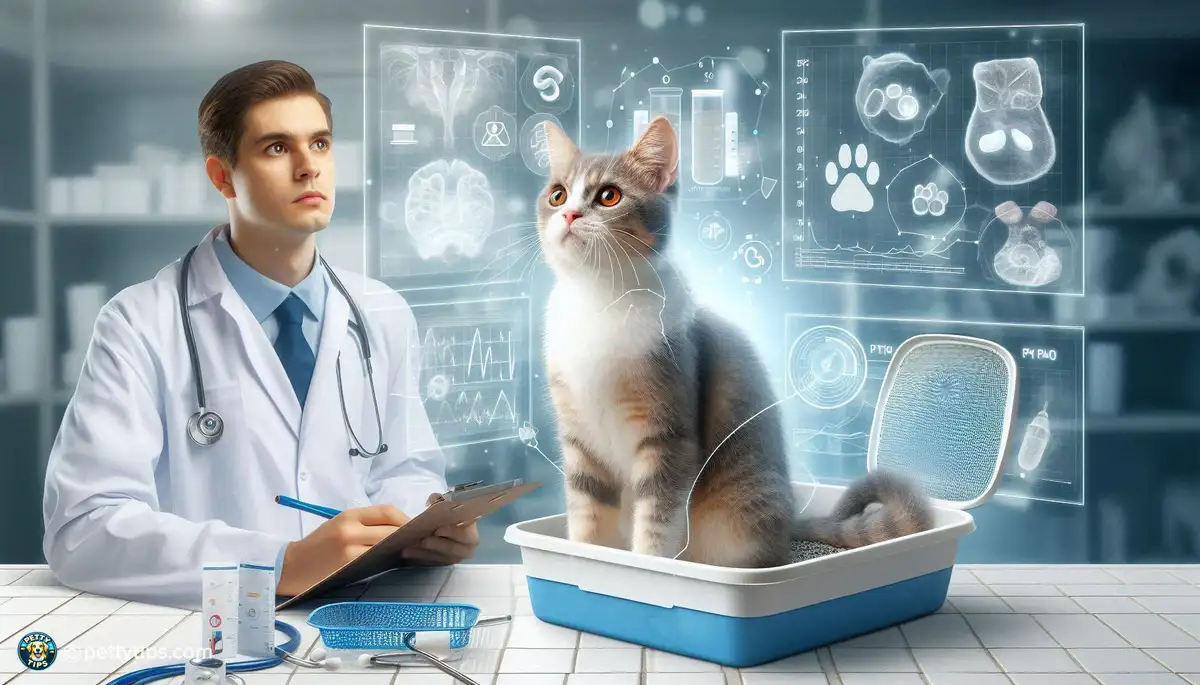
Understanding the Common Triggers for Anxiety in Cats
Chiara Rinaldi - Sep 02, 2024 - 8 min read


Cats, the enigmatic creatures that they are, often leave us pondering over their behavior. While they can be affectionate companions, they also have their fair share of quirks. One such behavior that can baffle cat owners is litter box avoidance. It's a common issue faced by many cat parents and can stem from various underlying reasons. Before delving into the medical causes, it's crucial to understand the basics of feline behavior.
litter boxes play a pivotal role in a cat's life. They serve as a designated spot for cats to relieve themselves, mimicking their instinctual behavior in the wild. However, if a cat starts avoiding the litter box, it's essential to address the issue promptly. While behavioral factors such as stress or anxiety can contribute to this problem, it's imperative to rule out any potential medical causes.
As vigilant cat owners, it's vital to pay attention to any changes in our feline friend's bathroom habits. litter box avoidance can manifest in various ways, including urinating or defecating outside the box, frequent accidents around the house, or even refusing to use the litter box altogether. These red flags should prompt us to investigate further and seek professional guidance to uncover the root cause.
When faced with litter box avoidance issues, consulting a veterinarian should be the first course of action. Veterinarians possess the expertise to conduct a thorough examination and identify any underlying medical conditions contributing to the problem. While behavioral issues are often a primary concern, ruling out medical causes is essential to ensure the overall well-being of our feline companions.
urinary tract infections (UTIs) are among the leading medical reasons for litter box avoidance in cats. These infections can cause discomfort and pain during urination, leading cats to associate the litter box with discomfort. As a result, they may seek alternative spots to relieve themselves, such as carpets or furniture. Symptoms of UTIs include frequent urination, straining to urinate, and blood in the urine.
Feline Lower Urinary Tract Disease (FLUTD) encompasses a group of urinary conditions that affect cats. FLUTD can encompass various issues, including urinary stones, bladder inflammation, or urethral blockages. Cats suffering from FLUTD may exhibit similar symptoms to those of UTIs, such as frequent urination, inappropriate elimination, and vocalization during urination. Prompt veterinary intervention is crucial to alleviate discomfort and prevent complications.
Diabetes Mellitus, a metabolic disorder characterized by high blood sugar levels, can also contribute to litter box avoidance in cats. Increased thirst and urination are hallmark symptoms of diabetes in cats. When left untreated, diabetes can lead to urinary tract infections and subsequent litter box issues. Monitoring blood sugar levels and implementing dietary changes are essential aspects of managing diabetes in cats.
Arthritis, a common condition in aging cats, can significantly impact their mobility and comfort levels. Cats suffering from arthritis may find it challenging to access the litter box, leading to avoidance behaviors. Additionally, the discomfort associated with arthritis may cause cats to associate the litter box with pain, further exacerbating the problem. Providing easy access litter boxes with low sides and seeking veterinary guidance for pain management are crucial steps in addressing this issue.
Maintaining a clean litter box environment is paramount to encourage consistent litter box usage in cats. Regular scooping and cleaning of the litter box not only promote good hygiene but also prevent potential aversions due to odor or dirt buildup. Cats are naturally clean animals, and providing them with a clean and inviting bathroom environment can significantly reduce litter box avoidance issues.
In households with multiple cats, providing sufficient litter boxes is essential to prevent territorial disputes and litter box aversions. The general rule of thumb is to have one litter box per cat, plus an additional box to accommodate their preferences. Placing litter boxes in quiet, easily accessible locations throughout the house can encourage cats to use them regularly and minimize competition.
Stress and anxiety can contribute to litter box avoidance in cats. Identifying and addressing potential stressors in a cat's environment, such as changes in routine, new pets, or loud noises, can help alleviate anxiety-related litter box issues. Creating a calm and enriching environment enriched with toys, hiding spots, and vertical spaces can promote emotional well-being and reduce stress-induced behaviors.
Regular veterinary check-ups are essential for maintaining our feline companions' overall health and well-being. Routine examinations can help identify potential medical issues early on, allowing for prompt intervention and treatment. Additionally, discussing any changes in behavior or bathroom habits with a veterinarian can help uncover underlying medical causes for litter box avoidance and ensure appropriate management strategies are implemented.
Uncovering the medical reasons for litter box avoidance in cats requires a comprehensive approach that considers both behavioral and medical factors. By understanding feline behavior, recognizing common medical causes, and implementing preventative strategies, cat owners can help maintain their furry friends' litter box habits and overall quality of life. Remember, proactive veterinary care and attentive observation are key to addressing litter box avoidance issues and promoting a harmonious relationship between cats and their litter boxes.